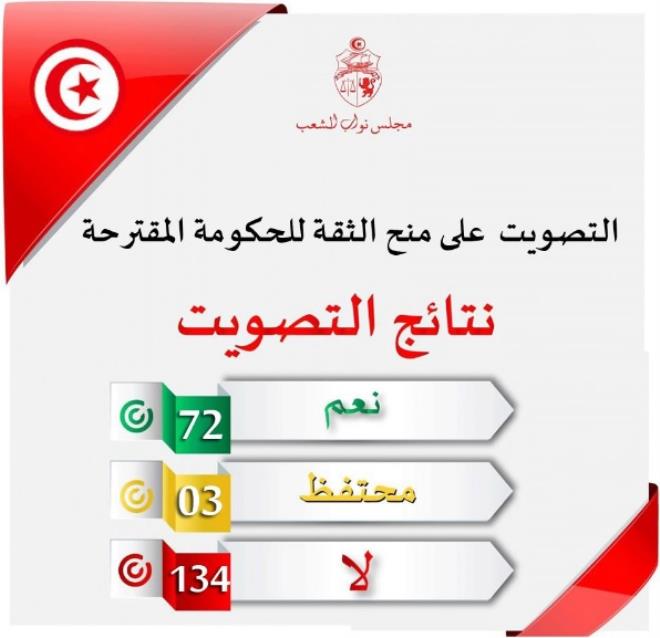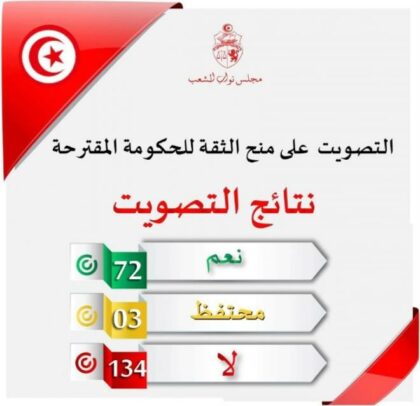
Tunisia: Political Deadlock Continues with PM-Designate’s Failure to Win Confidence Vote
 The political deadlock in Tunisia is likely to go on for some time after the parliament on Friday rejected, in a confidence vote, the government formed by Prime Minister-designate Habib Jemli, an independent who had been proposed by Islamist Ennahda Party.
The political deadlock in Tunisia is likely to go on for some time after the parliament on Friday rejected, in a confidence vote, the government formed by Prime Minister-designate Habib Jemli, an independent who had been proposed by Islamist Ennahda Party.
The coalition government formed of independent lawmakers was rejected after over 12 hours of debates and a last-minute negotiation marathon, by 134 votes to 72. A majority of 109 votes was required to have the cabinet approved.
Jemli’s opponents impute his failure to win the confidence vote to the fact that he tried to impose magistrates, considered as pro-Ennahdha, at the head of the sovereign ministries, such as Justice and the Interior.
Analysts view the clear rejection by the Tunisian parliament of the government proposed by Ennahdha as a blow to the Islamist-inspired party, that emerged as the most powerful party in the country in the wake of the 2011 Revolution.
Actually, the Islamist movement has been directly or indirectly in power for most of the past nine years, since the fall of Zine el Abidine Ben Ali’s regime.
However, the party has seemingly lost the majority position it had since the revolution and although it is the first force of the fragmented House of Representatives, it has only 54 seats out of 217.
The ball is now in the hands of President Kais Saied who must find a new Prime Minister. On Saturday morning, he received the head of Ennahdha and Speaker of Parliament Rached Ghannouchi, the presidency announced, insisting “on the importance of respecting the Constitution”.
The President now has ten days to initiate consultations to find “the person deemed most suitable” who will have a month to form a government.
Meanwhile, Youssef Chahed will continue as a caretaker Premier until a new government is approved.
Jemli’s failure to win the confidence vote means the North African country must restart a complex coalition-building process that may take weeks of laborious negotiations with a largely unpredictable outcome, while the country faces significant social and economic challenges.
